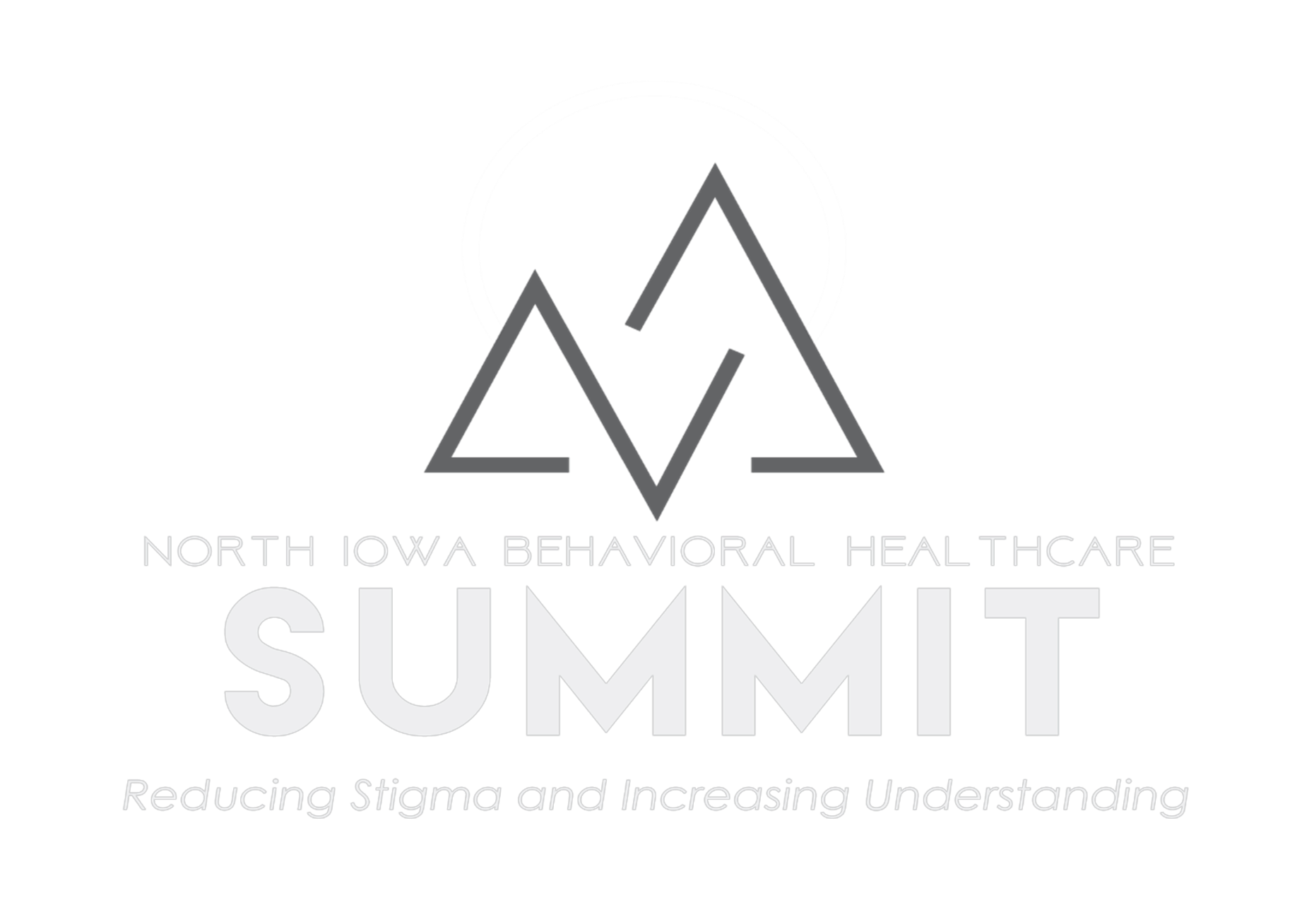
North Iowa Behavioral Health Summit 2025
Date: April 24, 2025 • Time: 8 AM - 3 PM • Cost: $75
5 Continuing Education Credits offered
-
8:00 - 8:30 a.m.
Registration & Refreshments
-
8:30 - 9:30 a.m.
(Not) Trusting Adults: A Flaw in the Community-Based Suicide Prevention Approach
Brenda Tyrrell, PhD, Mental Health & Education Coordinator, YSS -
9:30 - 10:30 a.m.
Building Bridges with Medication for Opioid Use Disorder
Debra Groath, DNP, ARNP, Prairie Ridge
Katie Behr, tLMHC, CADC, Prairie Ridge
Kelsey Wood, BSN, RN, Prairie Ridge
-
10:45 - 11:45 am
Stigma Associated with Substance Use Disorders
Christine Riggert, BA, CPS, Prairie Ridge
-
12:30 - 2:30 pm
Cradle to Prison Pipeline: Architecture & Solutions
Frank Grijalva, MSPH, MSCC, Midwest Trauma Services Network -
2:30 - 3:00 pm
Conclusion
Speaker Info
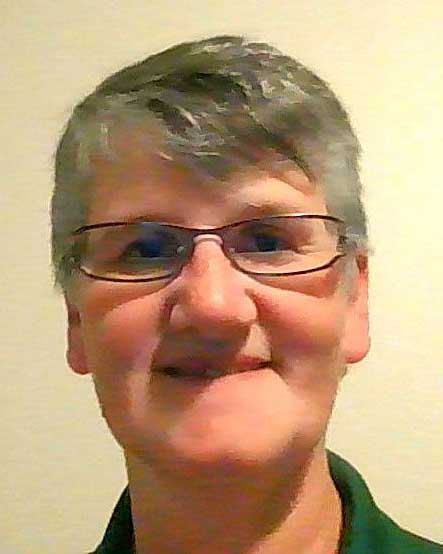
(Not) Trusting Adults: A Flaw in the Community-Based Suicide Prevention Approach
Description: In 2024, the White House Administration released its National Strategy, identifying Community-Based Suicide Prevention as Strategic Direction #1, exhorting that “No one agency, organization, or sector can prevent suicide on its own” (22). Yet, in our experiences, the mostly-rural communities we serve aren’t necessarily aware of their role in suicide prevention. In other words, despite the sound sense of a community-based approach to suicide prevention, the truth is that this is not how it plays out in our school-based suicide prevention program. Most alarmingly, youth in the populations we serve declare proudly and loudly that they “trust no adult,” including their own adults, and seem to provide (in most cases) clear and reasonable rationale for this grave mistrust.
In this talk, I will provide a short introduction to our organization and the curriculum we use before reviewing an activity that we do in all grades: The Qualities of Helpful People. We will review the range of responses received from youth over the past two years and consider how these responses impact the presumed ease of success and implementation of Community-Based Suicide Prevention in many of our rural communities. Next, we will pause to allow attendees to reflect on what they would consider a trusted adult from the viewpoint of youth ranging from 5th-12th grade and if they would identify themselves as a trusted adult. Lastly, we will discuss the flaw in the community-based suicide prevention model – the community – and come up with some strategies to work around or overcome this flaw.
Learning Objectives:
- Recognize the value/need to incorporate suicide prevention carefully and thoughtfully into schools.
- Acknowledge that adults should not assume the level of trust youth experience with adults.
- Acknowledge the significant role adults – both caregivers and community members - play in youth suicide prevention.
- Consider and reflect on the participant’s role as a trusted adult.
- Recognize the important and critical role community plays in suicide prevention.
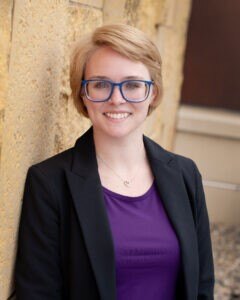
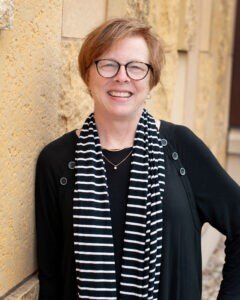

Building Bridges With Medication for Opioid Use Disorder
Prairie Ridge Integrated Behavioral Healthcare
Description: This program will discuss the current state of the opioid crisis and new opportunities in North Iowa to improve access to care.
Learning Objectives:
At the end of this session participants will be able to:
- Describe the current state of the opioid crisis
- Differentiate between the three FDA approved medications for opioid use disorder (MOUD)
- Understand what an Opioid Treatment Program (OTP) is and how it can benefit the region
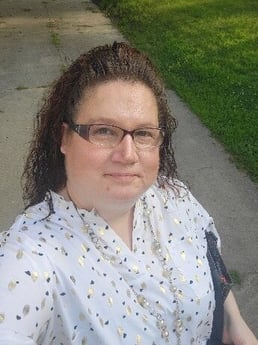
Stigma Associated with Substance Use Disorders
Description: This program will define stigma, including the three levels of stigma and the relationship they have with each other. In this program, we will look at stigma within the healthcare system and discuss how stigma makes individuals feel. We will discuss the problems and consequences of stigma and the ways to address all three levels of stigma. Language related to stigma will also be addressed.
Learning Objectives:
- Recognize the three levels of stigma associated with people who have a substance use disorder.
- Identify common perceptions, beliefs, and behaviors that promote or constitute stigma.
- Describe the problems and consequences caused by stigma.
- Identify strategies and the audiences to engage for change.
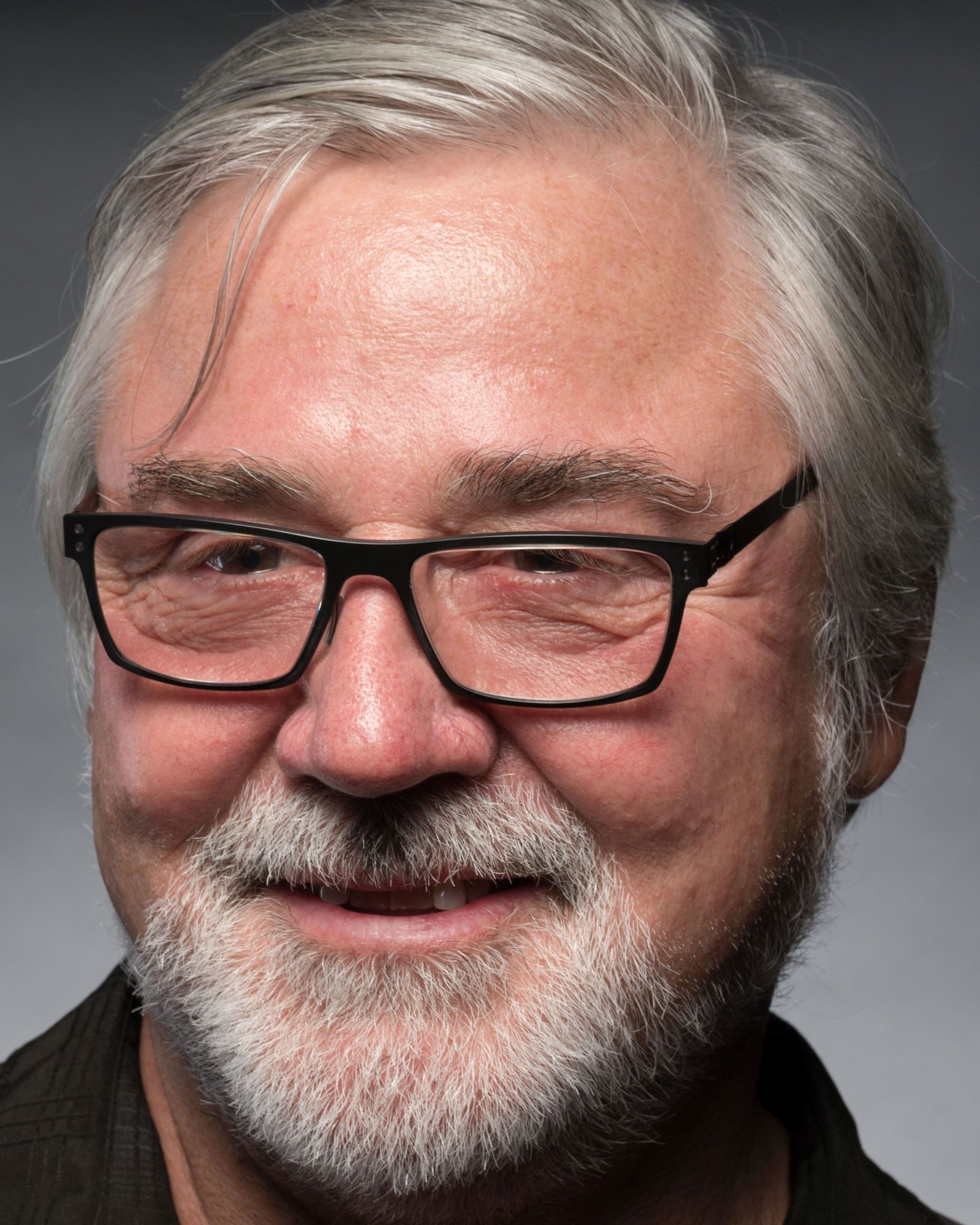
Cradle to Prison Pipeline: Architecture and Solutions
Description: The explosion in science over the last 30 years has helped us better understand the dynamics between the American culture of individualism, the decrease in family connection, and the increase in human suffering. This program will explore those dynamics and offer some immediate concrete steps towards solution.
Learning Objectives:
- Describe the profound impact of infant neglect on lifelong functioning.
- Describe the developmental conditioning that occurs for children in challenging homes.
- Demonstrate how that conditioning creates adversarial relationships with society.
- Recognize how to construct community resources that can preserve and grow individual and community health.
6:30 - 7:30 pm • Muse Norris Conference Center
Call 641-422-4358 to register

What Does It Mean To Be Traumatized? Whose Perception Matters.
Event Focus: Redefine and understand the true meaning of trauma and its impact.
Key Takeaways:
- Clearer understanding of what it means to be traumatized.
- Insight into community resources to prevent and address new trauma.
- Knowledge of the conditions that support healing.
- A guide to the continuum of care for those ready to heal.
- Why attend?: Equip yourself with tools and knowledge to better support trauma recovery and foster healing in your community.

Brenda Tyrrell spent the first 20+ years of her working life as a Certified Nursing Assistant and, later, as a Registered Nurse. During her nursing tenure, her area of expertise was cardiology and gerontology. When Brenda returned to school at the age of 43, she started a journey that ended with a Literature PhD and a Women, Gender, & Sexuality Certificate from Miami University in Oxford, OH. She worked briefly at Iowa State University before coming into her current role as the Mental Health & Wellness Education Coordinator at YSS in Ames, IA. She has multiple publications and presentations from her PhD experiences and hopes to eventually grow this current experience into her own Youth Mental Health & Wellness Curriculum that includes building resilience, self-care, managing stress, recognizing factors that influence mental health that are out of our control (Social Determinates of Health) and those that are in our control, as well as a built-in suicide prevention program. She is also an avid birder and is often (lovingly) teased about being “easily distracted by birds”!
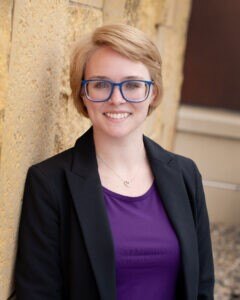
Katie began her work at Prairie Ridge as an intern and continued her work with the agency after graduating from Buena Vista University with a Masters of Science in Education in Mental Health Counseling. While a graduate student, she served on the American Counseling Association of Iowa board in the Graduate Chair position. Katie is certified in EMDR and trained in PCIT, and uses these as well as other evidenced based practices to treat trauma and related co-occurring patients.
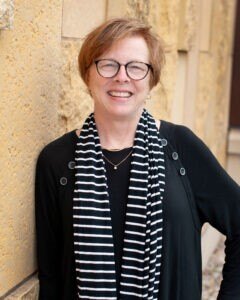
As a Doctor of Nursing Practice, Deb Groath has experience in both primary and specialty care with a holistic relationship centered focus. She currently integrates primary care into behavioral health care at Prairie Ridge. Deb has had diverse interests throughout her career and has worked in both large and small health care communities. Her career started at the University of Iowa Hospitals and Clinics in neurosurgery, re-locating to North Iowa for opportunities as the Director of Education, Director of Nursing for a small rural hospital, Director of Quality, advanced nursing practice in palliative care and hospice, and now focusing on the needs of patients with substance use and mental health concerns. She also has interest in moving legislative initiatives forward allowing improved access to care for the mental health and substance use population of North Iowa.

Kelsey Wood is the Psychiatric and Medical Clinic Director at Prairie Ridge. She has been employed with Prairie Ridge since 2017 and has served in multiple capacities within the agency. In the past, Kelsey enjoyed serving as the Inpatient Residential Nurse and IHH Nurse at Prairie Ridge. She strives to support patients with both their physical and mental health needs.

Christine L. Riggert is a Certified Prevention Specialist and is currently the Prevention Supervisor at Prairie Ridge Integrated Behavioral Healthcare. Combined, she has over 12 years of experience between her time in treatment services and her current prevention work. She enjoys being able to interact with an audience when presenting information and encourages discussion over lecture. Her goal in every presentation is that everyone learns something new.

Frank came through the California system as a child adopted into a family challenged with mental health and substance abuse issues. Raised in the East Bay area of Northern California, Frank attended nine different schools in his first nine years. Raised in a challenging home in a challenging environment both geographically and historically, Frank has a unique perspective that translates for many of our most traumatized communities, families and children. Frank negotiated his way into the military and his first professional training was as a special warfare diver attached to the Marine Mammal program of the United States Navy where he spent eight years honing behavior modification skills, stress management and understanding the dynamics of nonverbal communication. Later, as a stay at home dad for two kids and a student of psychology he became aware of and struggled with development, his own trauma exposure, and behavioral progressions and sequencing. This led to a journey of self-exploration and an academic focus on psychological trauma.
Frank has worked with the International Trauma Center since 1999 and deployed to Ground Zero to manage a team of clinicians working with a federal agency in “the dig” to stabilize them ongoing as they did their difficult work. Frank also worked extensively throughout Louisiana and Mississippi in the aftermath of Katrina. Frank has worked abroad in Israel, Gaza and the West Bank, Nepal, Jordan, Haiti and several other countries for agencies like Save the Children, USAID, the World Bank and the International Center for the Protection of Victims of Torture to develop interventions and train clinicians working with children.
As Director of the Midwest Trauma Services Network and senior vice president of programming for the International Trauma Center he has spent the last several years introducing and training selected trauma informed evidence based practices as well as designing and implementing innovations specific to people from at-risk environments through the OJJDP. Frank currently consults, trains and speaks in several states for trauma in schools, foster and adoptive parents, community change through trauma informed care and provides direct psychoeducation and coaching to complexly traumatized children and families. Frank has a BS in disaster psychology with an emphasis on mental health, an MS in Public Health with a focus on child mental health and an MS in clinical counseling with trauma theory as the primary theoretical framework. Frank is the proud father of two gifted and resilient children who contribute in significant ways in their chosen professions. His mission is to create a world that understands the impact of trauma and abuse on children, families, communities and culture by teaching, challenging and learning everywhere he goes.
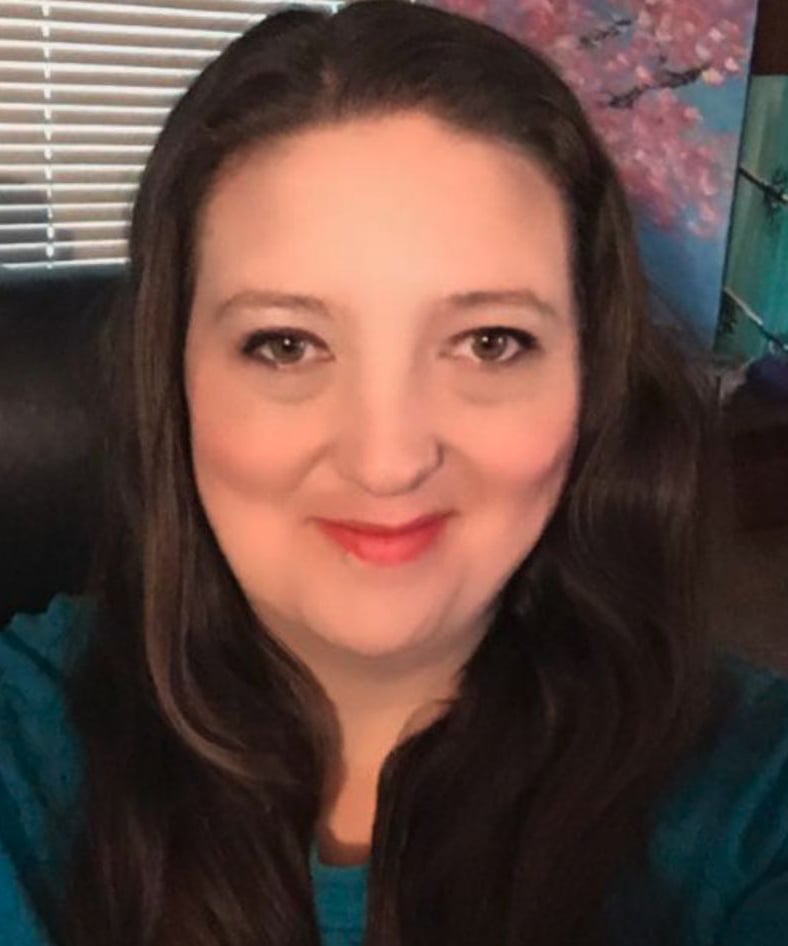
June Klein-Bacon, BSW, CBIST
Brain Injury Alliance of Iowa
The Intersection of Brain Injury & Behavioral Health
Description: This session will provide attendees the opportunity to learn about brain injury and intersections with behavioral health. This session will support service planning through the lens of brain injury.
Learning Objectives:
- Attendees will process the incidence and prevalence rates of brain injury in the general population and behavioral health.
- Attendees will account for brain injury mechanism and symptoms and long-term outcomes of brain injury.
- Attendees will practice concepts of symptom management following brain injury to support service and treatment planning.
-1.jpg)
John Swegle, PharmD, BCPS, BCACP
College of Pharmacy, University of Iowa Mercy Family Medicine Residency
Medications Used In Behavioral Health
Description: This program will provide an overview of medications used to treat common mental health conditions. Classes of medications will be reviewed including appropriate use and combination therapy as appropriate.
Learning Objectives:
- Identify the differences among the classes of medications used to treat mental health conditions
- Describe how medications are started and altered based on patient response
- Describe the rationale for combination therapy
- Discuss options for patients who are intolerant or fail to respond to medications
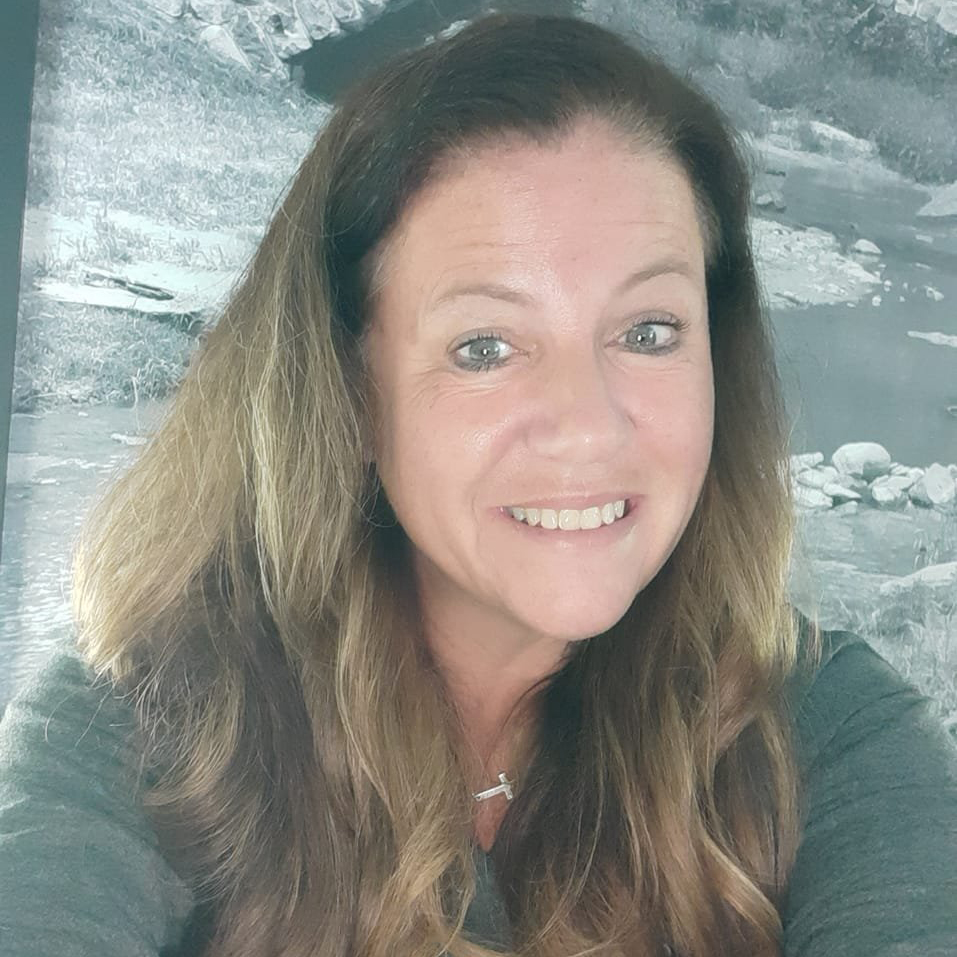
Angela Sailor
Licensed Alcohol & Drug Counselor
"Growing up in a dysfunctional family was challenging. I searched for love and acceptance in all the wrong places. I was a single mom of three wonderful children. I experimented with drugs and became addicted in time. My criminal thinking and irrational thoughts steered my choices, which ended up in severe consequences. I landed in federal prison, thinking my life was over. Little did I know, God had a bigger plan for me."
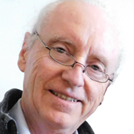
Fe Avis
INSERT TITLE/PRESENTER

The SPEAK Workshop (Supporting Parents of Estranged Adult Kids) will help equip participants who are serving clients that are dealing with the issue of parental estrangement. This includes (a) gaining a working knowledge of estrangement, what it is, some of the factors contributing to it, and how parents experience this traumatic aspect of their older adult years, (b) learning a model for helping parents disclose the estrangement, explore its impacts, assess whether to work toward reconciliation or recovery, cultivate hope, and discover resources that can be helpful and (c) offering some practical tools for doing the work of recovery.
Co-Sponsors
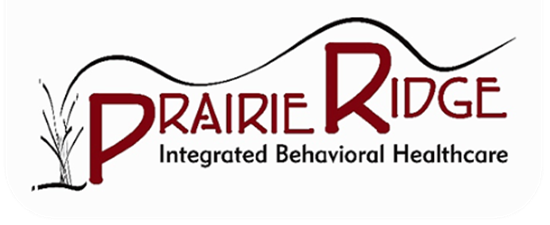
Prairie Ridge logo.
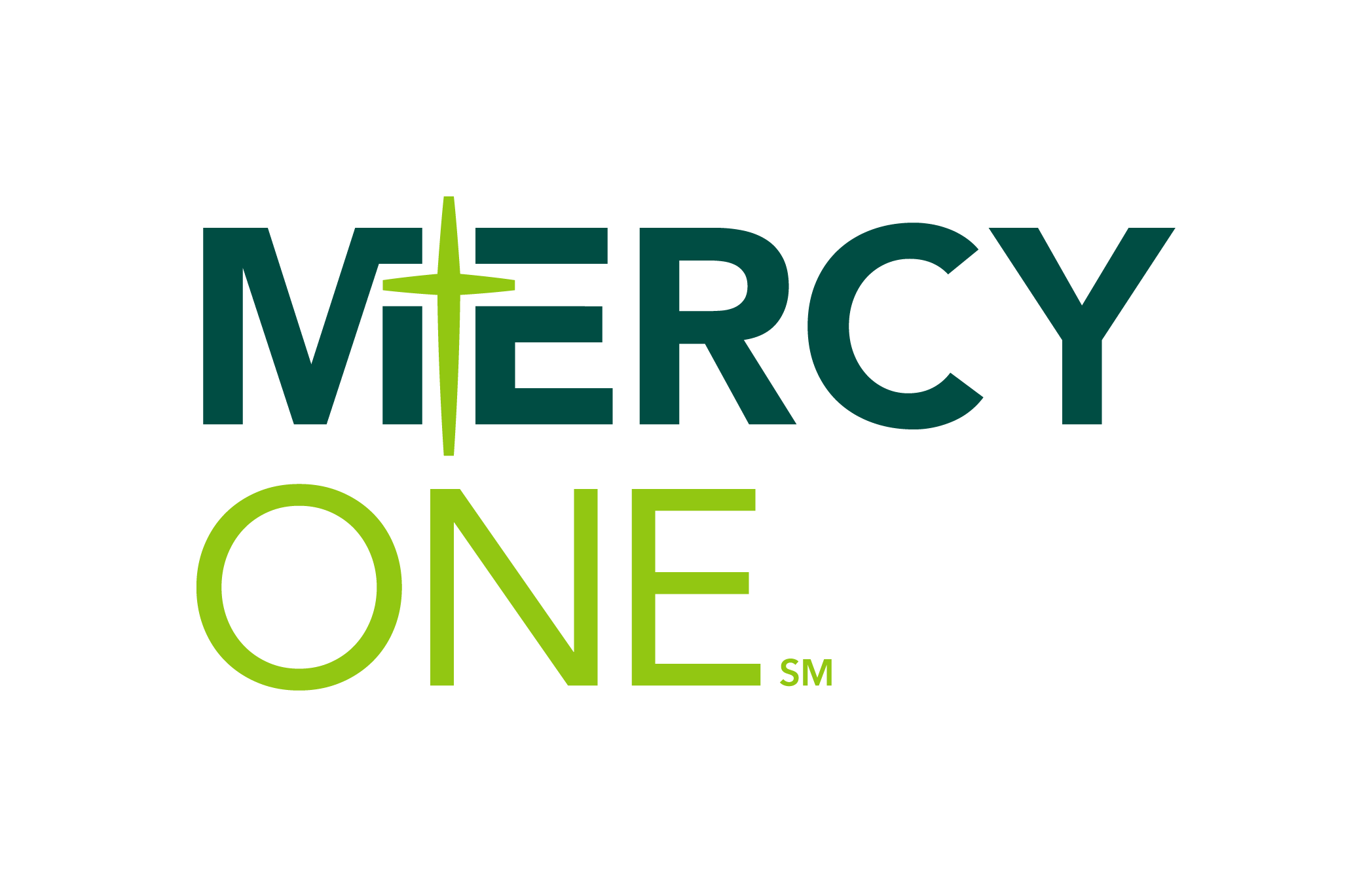
Mercy-One-Stacked_color


